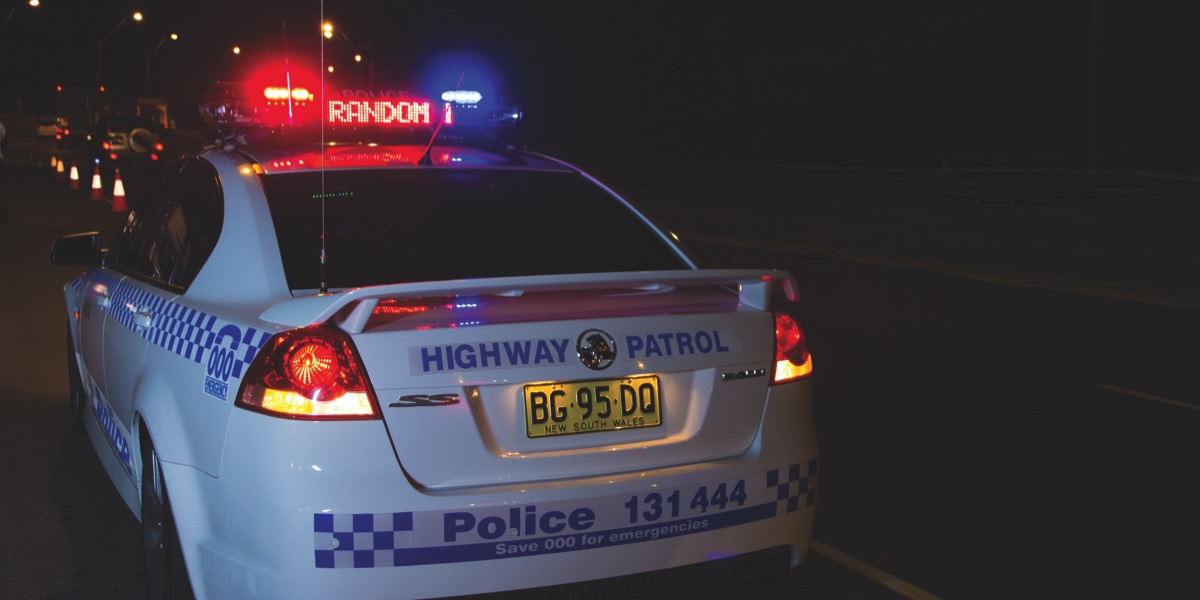Bringing national attention to the issue of drink driving each week, Nine’s observational documentary series has proven to educate viewers on the issues and protocols associated with police random breath testing. Its educational flow-on effects have also had an impact on the crew producing the show.
“We never put anyone to air that hasn’t consented. We get a fair amount of people saying they’d rather not”
“Everyone who works on this show has been much more diligent about how much they consume,” revealed RBT executive producer Basia Bonkowski. “I’m always quite vocal about the fact there are families and people out on the road and there are others on the road who have had far too much to drink or have taken dangerous drugs and are actually driving. I’m passionate about getting those people off the road. I think it’s important to try to get that awareness out there.”
After six seasons and 65 episodes of the show, Australian viewers are now far more savvy about breath testing.
“It’s quite interesting with this program, police say it as well: they put the fact that people aren’t drink driving as much down to them being much more aware of what’s going on because of RBT. I’ve noticed in the rushes people saying,‘I know what this is – I watch RBT. I know how to blow.’ There is a real awareness of it. It is effective,” she said.
“It really is a gamble. Some nights you go out there and get no stories. Other nights you might get two or three”
RBT, a Screentime production, returned from a production hiatus, filming since late last year. Typically, a normal series of the show takes about four months to shoot.
The series is recorded with the assistance of the police. Each RBT production team is assigned a police liaison, with that officer serving to facilitate its engagements with the police and the public. The police liaison is also responsible for driving the media car that follows the police while out on a mobile patrol.
The assistance of the police is also incredibly helpful with one of the greatest difficulties the show faces – audio.
“We mic the police and we also have a boom. Sometimes audio is a little tricky, but we do get there. We’ve been doing it for so long that we’ve perfected it. It’s a difficult environment because you’re always on the move. It’s full-on, especially when you’re doing a mobile patrol. It’s not so hard when you’re doing a classic RBT, but out on a mobile patrol you have to jump out of the car – that’s when it becomes a bit tricky,” Bonkowski said.
With production generally taking place on the busier nights of the week, Friday and Saturday, the show is very much at the mercy of good stories presenting themselves at the RBT locations. Not every night yields a story worthy of the show, but bad nights never concern Bonkowski: “We have some great stories. We always get good stories.
“It really is a gamble. Some nights you go out there and get no stories. Other nights you might get two or three. It depends how busy it is out there. We went up to Newcastle the other night and police pulled over 80 people and nobody was over the limit. Then you go up another night and maybe there’ll be two or three. You just never know.

Narrator Andrew Daddo
“In a best-case scenario, we usually have two crews out every weekend for two to three nights. If we go up to country areas, we’ll always do three nights. If we’re in the city, we usually do a Friday and Saturday. If there’s a big drug operation, the police like to target people for drugs during the day. Those operations can be on a Monday or a Tuesday.”
When a good story does present itself, the production crew knows right away. It’s not like other ob-docs where sometimes a story can reveal itself later in the editing suite.
Testing positive or over the limit can be embarrassing for people, with repercussions that can lead to issues like losing work or damaging their public stature. It’s a sensitive issue that the producers are sensitive to.
“We never put anyone to air that hasn’t consented. We get a fair amount of people saying they’d rather not. It may be about 50/50. It depends on the story, the night, and the location. Depending on the suburb you’re filming in, you’ll get consent or not. In some suburbs people tend to say no. In other suburbs people are more willing to say yes,” Bonkowski explained.
Because the show is interested in telling a broad range of stories, the show doesn’t just stick to the suburbs where the crew know they will get good stories for the show.
One of the true surprises of the success of RBT is that it attracts as much viewer enthusiasm as it does. Nobody likes to be stopped at an RBT, yet we’re quite happy to watch them on television. Even Bonkowski, who is passionate about the positive influence of RBT on drivers, admitted that she gets frustrated when she is stopped by one.
Before you ask, Bonkowski did pass the test. “It was in the middle of the day and I had an alcohol and blood test. Happily, I did pass. I would be a fool if I didn’t,” Bonkowski revealed with a hearty laugh.
RBT screens 7:30pm Thursdays on Nine
